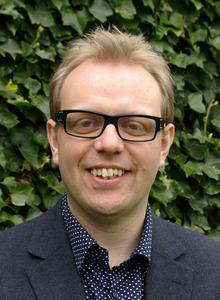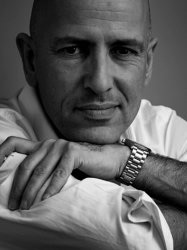
The Principal Investigator on the Team, Edith holds a Chair in Classics at the University of Durham. Edith has published widely on ancient Greek and Roman civilisations and their continuing impact in the modern world, including her monograph Aristotle’s Way: How Ancient Wisdom can Change Your Life (2017) and prizewinning study A People’s History of Classics (2020, co-authored with Henry Stead). She is Co-Founding Consultant Director of the Archive of Performances of Greek & Roman Drama at the University of Oxford. She was PI on the AHRC-funded Classics and Class project (2012-2017) and Leadership Fellow of the AHRC on the campaign Advocating Classics Education. She broadcasts regularly on BBC Radio and acts as consultant to professional theatre companies. She is the recipient of the 2015 Erasmus Medal of the European Academy and Honorary Doctorates from Athens and Durham Universities. Follow her on Twitter @edithmayhall.

In addition to acting as Research Fellow on the project, Arlene is Professor of Classics Education and Public Policy at Durham University where she holds a British Academy Innovation Fellowship (2022-2024) and leads the Latin with Classics teacher training course (PGCE). She specialises in the study of rhetoric, its reception and its contributions to contemporary education. Beyond rhetoric, she investigates the learning and teaching of classical subjects in schools, universities and communities. As an expert in Classics outreach and knowledge exchange, she engages diverse stakeholders to explore ways to widen access to the study of the classical world. Forward with Classics (with Hunt and Musie, Bloomsbury, 2018) was her first book; Expanding Classics (Routledge, 2023) is her second. At Durham, she co-directs the Advocating Classics Education (ACE) project with Professor Edith Hall. Since 2017, ACE has worked in partnership with 16 University partners around the UK and Ireland to introduce Classical Civilisation and Ancient History into non-fee-paying schools and colleges. A graduate of Oxford, Harvard and Cambridge, Arlene is a qualified teacher who taught in high schools for more than a decade. Working at the intersection of research, policy and practice, Arlene is currently sharing her research on Classics, rhetoric, oracy and critical skills with policymakers in government and parliament. For more information, see www.drarlenehh.com or follow her on Twitter @drarlenehh.

Rory is the PDRA on the project working on the popular reception of Aristotle’s natural science, especially zoology and gynaecology in the Early Modern period. He is writing two chapters for the monograph on Aristotle's Masterpiece and the contribution of History of Animals to modern zoology alongside a paper for March's conference, "Milestones in Aristotle's Public Reception". Previously, he completed a PhD on the reception of the ruins of Palmyra in the long eighteenth century and taught in the Classics and Ancient History department, both at Durham University. He has also worked as a co-coordinator of Classics and Class in the North East alongside Edith and Arlene since 2022, helping to expand access to classical material in schools and other underrepresented local communities. He is the author of The Reception of the Ruins of Palmyra in the Long Eigtheenth Century (OUP, 2025) and contributing a paper on amateur theatre in Newcastle to Classical Encounters in England's North-East (Routledge Taylor Francis, 2025).

Peter was the full-time PDRA for the project working on the popular reception of Aristotle’s natural science. He contributed a chapter on Aristotle and Darwin for the forthcoming monograph alongside constructing and designing our website. On July 4th, 2024 he was elected to parliament as the first Labour MP for the Bracknell Constituency. We wish him well in his next venture! Previously, he held a postdoctoral position at the Centre for Hellenic Studies, King’s College London, and taught at both KCL and Goldsmiths. He has also taught at Notting Hill and Ealing High School. He is the author of Aristophanes in Britain: Old Comedy in the Nineteenth-Century (OUP, 2023) and edited Aristophanic Humour with Edith Hall (Bloomsbury, 2020). He sits on the Classical Association’s Teaching Board as a HE Rep, and since 2017 has worked with the Advocating Classics Education project to expand access to classical education in schools. In 2023, he won the Classical Association Making Classics More Inclusive Award.

Barbara Goff is Professor of Classics at the University of Reading. She has published widely on Greek tragedy and its reception, especially in postcolonial contexts, and she is currently researching intersections between classics and the progressive movements of early twentieth century Britain.

Sophia Connell is Senior Lecturer in Philosophy at Birkbeck College. She has written Aristotle on Female Animals (2016) and Aristotle on Women (2021) and numerous papers on Aristotle’s philosophy and its legacy. She has also published on women in philosophy and ancient gynaecology and edited The Cambridge Companion to Aristotle’s Biology (2021).

H. Nur Beyaz Erkızan is a professor of philosophy at Muğla Sıtkı Koçman University in Turkey. She studied at Ege University (Turkey), and earnt her MPhil from Essex University and PhD from Bristol University, both on Aristotle. Her research areas are the ancient history of philosophy, feminism, social justice, Aristotle, and Nussbaum. In 2011, she established the Philosophical Society of Aristotle in Turkey, followed by the founding of the Philosophical Journal of Arkhe-logos in 2016.
She has translated and edited some of Aristotle's works into Turkish and is currently working on developing the Life Impact Approach and Life Impact Index. In 2022, she built The School of Philosophy for Women in the Aristotelian spirit of social democracy to educate women on human rights. She is currently working on a book titled Aristotelian Existentialism: Non-Kinetic Understanding of Human in Aristotle.

Dr Jon Hesk is Reader in Greek and Classical Studies at the University of St Andrews. He has published on Aristotle’s concept of euboulia (‘deliberative virtue’) and its precursors in Greek tragedy and historiography. He has also written on the interpretive value of Aristotle’s typology of oratory and makes frequent us of Aristotle’s Rhetoric in his occasional blog ‘Ancient and Modern Rhetoric’. He is currently working on a monograph called Deliberation and Decision-making from Homer to Aristotle.

Professor of Evolutionary Developmental Biology, Imperial College London. In January 2009 Leroi presented the BBC4 documentary What Darwin Didn't Know, which charts the progress in the field of Evolutionary Theory since the original publication of On the Origin of Species in 1859. In January 2010 Leroi presented the BBC4 documentary Aristotle's Lagoon, expanded in his 2014 book The Lagoon: How Aristotle Invented Science.

Fran O’Rourke is emeritus professor of Philosophy, University College Dublin. He is primarily interested in the classical tradition of Plato, Aristotle, and Aquinas. He is the author of Pseudo-Dionysius and the Metaphysics of Aquinas (Brill, 1992 / University of Notre Dame Press, 2005). In 2016 he published Aristotelian Interpretations, a collection of ten essays. His recent Joyce, Aristotle, and Aquinas was praised by Joyce specialist Morris Beja for its “genuine brilliance”. One reviewer stated “It is certainly the most important book on Joyce that has been written by an Irish scholar in recent times.” Professor O’Rourke was awarded a DLitt by the National University of Ireland.

Holds a joint Chair in Classics and Political Science at Northwestern University, Illinois. Her interests include Greek political theory and its reception in US public life. Her publications have addressed Aristotle’s proposition that it can be sensible to speak of “slaves by nature” and the life of his argument in antebellum politics.

Professor of Greek at the University of Chicago. His research interests include Classical Reception, Race and performance, Queer theory and Social History. His books include Aristotle and Black Drama: A Theater of Civil Disobedience (2013).

Senior Lecturer in Ancient Greek History at Newcastle University. His interests include ancient Greek race and ethnography and their reception and Herodotus in the 19th century. His publications include books on those subjects and ‘Writing Culture: Historiography, Hybridity, and the Shaping of Collective Memory’, in Histos, 2020, pp.189-234.

Senior Lecturer in Classics at St. Andrews University. He is a Classical Reception scholar and Latinist with a special interest in the reception of Greek and Roman culture among the British working classes from the late 18th to the 20th century. He is the author of A Cockney Catullus (2015), researcher and designer of the AhRC-Funded project Classics and Class and co-author with Edith Hall of A People’s History of Classics: Class and Greco-Roman Antiquity in Britain and Ireland 1689-1939 (2020).

Senior Lecturer in Ancient Philosophy at King’s College London. His research interests include ancient philosophy and religion, Early Greek (‘Presocratic’) Philosophy, Ancient Greek theology and religion and Hellenistic scepticism. He is the author of Mortal and Divine in Early Greek Epistemology: A Study of Hesiod, Xenophanes and Parmenides. Cambridge (2017).

Richard Toye is Professor of Modern History at the University of Exeter. he has written extensively on the relationship between history, politics and rhetoric, drawing on the ideas of Aristotle, for example in his book Rhetoric: A Very Short Introduction (Oxford University Press, 2013).